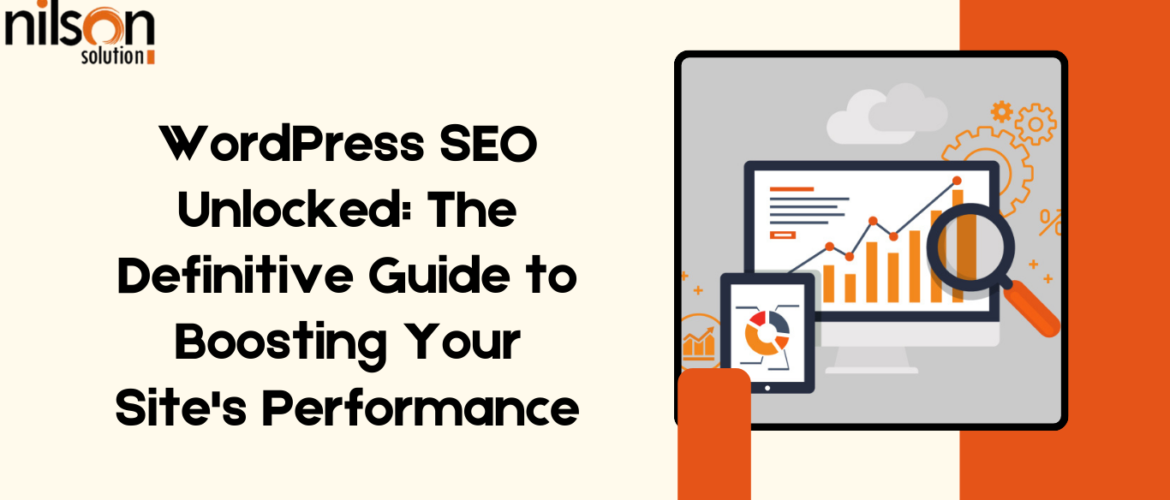Want to know why your WordPress website doesn’t appear to be receiving the desired amount of traffic? Maybe you’ve been in that maddeningly helpless situation when everything seems to be going right, but your site simply refuses to budge into a good spot in the search engines.
It’s true: as awesome as a platform as WordPress really is, great design can still miss out on ranking without the right SEO techniques in place. You know, WordPress SEO is way more than just putting in some keywords. Every single detail of a website needs to be perfectly put together to rank highly with search engines.
Well, in this comprehensive guide, you’re entering the WordPress SEO world, where all of the essential strategies and techniques are examined for unlocking your site’s full potential. Thus, from the basics to finely tuned advanced WordPress SEO services methods in the application, this is a no-fluff guide packed with practical insights devised to bring your site forward. Let us go ahead and find out how you can make your WordPress site truly rock the rankings.
Understanding the Basics of WordPress SEO
Before getting into advanced techniques, let’s see some of the basic aspects of SEO with WordPress. At its core, SEO is about making your website communicate properly with search engines. This greatly increases your exposure and leads to more traffic on your site, coming from organic results.
One of the huge advantages of WordPress is its SEO-friendly structure: the program, by default, creates clean, human-readable URLs that happen to structure a great basement for SEO, provided they have been set up correctly. Fully bringing the potential out will take just a little more work on your WordPress SEO development website.
Optimize on-page SEO factors
On-page SEO factors are parts of a webpage or website that help the page to list in search engines. Actually, these are very crucial elements because they act to tell the way search engines read your content and, thus, have an effect on your indexing and rating. Much emphasis is laid on the following key on-page SEO components:
Title tags and meta descriptions should be concise while being relevant enough to allow for your target keywords. Meta Descriptions summarize the content briefly, informing users of the content they will find on the linked page, thus attracting them to click your link.
Each webpage should have only one H1 heading. Other styling can be used for subheadings. This may bring better readability and sometimes even makes it clear to the design of a website for search engines, so it understands what content is on a website.
Image Optimization: These represent information in a visual form yet be SEO-friendly. Make sure that all your images have descriptive file names and alt text indicating what the image is about for accessibility purposes and indexation by search engines.
Internal linking is the process of creating links between various related pages on one website. This adds to active navigation for web crawlers and, thus, holds the visitors by navigating them to more interesting stuff.
Add SEO plugins to WordPress with SEO.
There are many plugins in WordPress that make SEO much easier and very practical.
Automatic Creation of XML Sitemaps:
This tool will automatically create and update XML sitemaps that are in use and help facilitate indexing by popular search engines more effectively.
Option for easy meta tag management:
Edit your title tags, meta descriptions, and social sharing tags with ease.
Breadcrumb navigation:
This should be a part of any website for both user experience and search engine optimization purposes. These add-ons make it easy for a site owner to SEO optimize his WordPress website without the need for extensive technical know-how. You can always take help from an SEO agency or SEO experts.
Advanced Search Engine Optimization for WordPress
Once you have built this firm foundation, you can advance with a more sophisticated step. One of the best things you can do is add structured data to your website—what is often called schema markup—which allows search engines to easily understand and comprehend information on your site and may improve how your pages appear in results with rich snippets.
What WordPress SEO expert services entails is paying attention to the minute details and following best practices. Ways to have high performance on the website within the search engine results are building strong foundations, efficient usage of the right plugins, and advanced strategies. Keep pace and be ahead of the curve; your WordPress site will benefit from increased search engine ranking and organic traffic. If this becomes overwhelming, then you can always take help from an SEO company.

